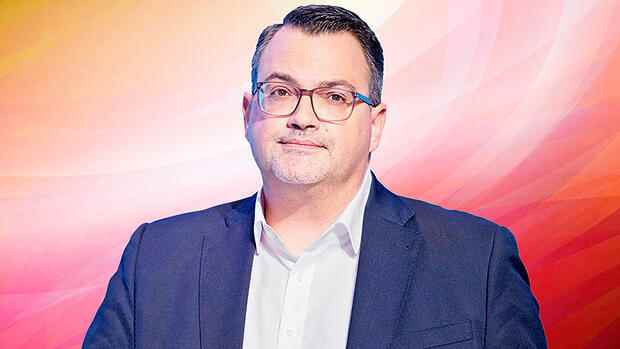On February 27, 2022, Chancellor Olaf Scholz announced a turning point and promised the Bundeswehr a one-time special fund of 100 billion euros. This has called into question, if not upside down, many of the previous assumptions and beliefs of German security and defense policy.
At the same time, a new dynamic gripped the entire defense industry to quickly meet the federal government’s new goals of supporting Ukraine and improving the operational capability of the Bundeswehr. The official side set up new staffs and work units overnight, and numerous companies went haywire to demonstrate their production and delivery capabilities.
This unusual speed indicates that we have a lot of catching up to do in Germany. Current calculations by the German Economic Institute put the German peace dividend at 394 billion euros. Germany has saved this gigantic sum since reunification compared to defense spending in the 1980s.
Important allies such as Great Britain (111 billion euros in peace dividends) and France (25 billion euros), on the other hand, kept their defense spending largely stable and made significantly fewer savings over the same period. As a result, the pressure to modernize is particularly high in Germany.
Top jobs of the day
Find the best jobs now and
be notified by email.
However, six months after the Chancellor’s speech, the initial momentum seems to be waning. The spirit of optimism has given way to widespread lamentation.
Observers complain about the still sluggish procurement and approval processes and calculate how inflation and other cost increases will decimate the special fund even before the first euro has been spent.
It is correct: the procedural and budgetary challenges remain considerable, both now and in the foreseeable future. It will take time to change structures, ways of thinking and processes that have been ingrained for decades.
However, this should neither discourage us nor cloud our vision. Turning point and special funds are historical milestones that set things in motion that were previously considered immovable or even impossible.
At no time in the history of the Bundeswehr was such an investment sum – twice the previous defense budget – available in one fell swoop to equip and modernize our armed forces.
The Bundeswehr can and should become the most modern conventional army in Europe
The traffic light coalition and the CDU fought hard and for a long time about the creation of the special fund and its purpose. In the end, an overwhelming two-thirds majority voted in favor of the special fund – a coherent and rare sign of the German Bundestag’s shared responsibility to and for its army.
Politics, administration and the defense industry are in an intensive, structured dialogue. It was not always so. Now the willingness to talk is high and the exchange is serious and open. It’s good.
The social debate on the importance of security as a basis for social prosperity and economic progress has also changed: politicians are discussing a mandatory year of service, and the first banks and investors are beginning to realign their investment criteria and take the importance of the defense industry into account.
The federal government’s investments will enable the German defense industry to increase its investments in research and development, create new jobs and strengthen its position in international competition.
Successful and lasting modernization and equipment will help develop the Bundeswehr into one of the most modern conventional armies in Europe. That must also be the yardstick.
After all, Germany must finally be able to fulfill the leadership role in the EU and NATO, to which we have committed ourselves in the alliance and which our neighbors rightly expect of us.
We also need a strategically oriented security policy
The incumbent federal government has set a new course in security and defense policy. This deserves recognition. But now it is important to maintain the momentum that has begun, to invest the special fund wisely and not to lose sight of the implementation of a permanently increasing defense budget.
In addition, the current crises and geopolitical challenges show us that, in addition to increasing defense spending, we also need a strategically oriented security and defense policy.
The first German National Security Strategy drawn up by the Federal Government forms the correct and necessary basis for this discussion.
>> Read here: One out of 400 candidates bites – Who Germany’s arms manufacturers are urgently looking for
A strategic approach will have to weigh up and prioritize all relevant aspects of security and defense policy – operational, fiscal, (alliance) political and industrial policy issues – and pour them into a holistic, long-term and European-coordinated political agenda.
This is also a complex task that will not be completed overnight.
On the contrary: it will take time and question positions that have become dear to all sides, since it also essentially concerns questions of the possibilities and limits of national and European sovereignty.
Chancellor Scholz clearly stated the importance of the sovereignty issue for Europe in his Prague speech. It will therefore depend on a partnership and a joint effort by politics, industry and society.
The German defense industry is ready to participate in the development of a strategic security and defense policy with its often world-leading know-how.
The last few months have shown that the companies in our industry are willing and able to constructively support politicians in shaping the new geopolitical framework.
So when, if not now, is the right time to set the course for the future defense capability of Germany and Europe?
The author:
Oliver Burkhard is CEO of the German shipyard Thyssen-Krupp Marine Systems (TKMS) as well as Labor Director and Chief Human Resources Officer of Thyssen-Krupp AG.
More: Clear strategy, high reputation: This is the most powerful army in the EU
